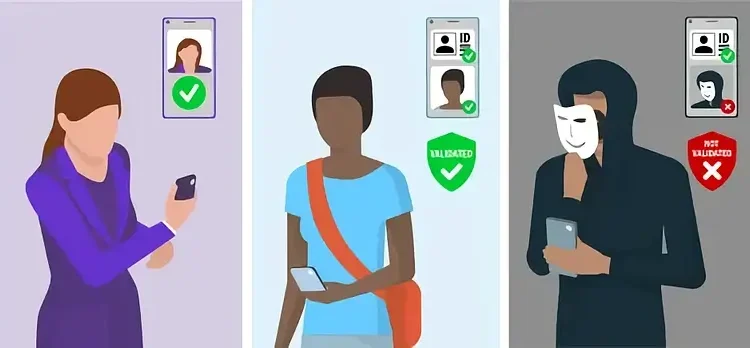The Department of Homeland Security (DHS) Science and Technology Directorate (S&T) has initiated the second phase of the Remote Identity Validation Rally (RIVR) to advance technologies for authenticating identity documents and combating identity fraud.
This effort, launched in 2025, aims to enhance security by preventing crimes such as human trafficking and bank fraud.
DHS Rolls Out Remote Identity Validation Rally
The Remote Identity Validation Rally (RIVR), spearheaded by DHS S&T, is a significant step towards improving remote identity verification systems.
This initiative builds on the benchmarks set during its first phase in 2024. By focusing on advanced technology development, RIVR seeks to bolster national security and protect against various forms of identity-related crimes.
Collaboration is at the heart of this initiative, with key partnerships involving the Transportation Security Administration (TSA), Homeland Security Investigations (HSI) Forensic Laboratory, and the National Institute of Standards and Technology (NIST).
These collaborations aim to support the full implementation of Real ID, ensuring robust identity verification processes across multiple sectors.
Strengthening National Security
The RIVR program aligns with broader U.S. policy goals focused on securing identity verification to protect critical infrastructure and public safety.
By preventing criminals from exploiting weak ID enforcement for domestic air travel, this initiative plays a vital role in strengthening border integrity and national security.
Technological Advancements
- Development of cutting-edge document validation systems
- Enhancement of remote identity verification technologies
- Support for Real ID enforcement across government services
- Promotion of innovation through public-private partnerships
Economic Implications
The economic benefits of improved identity verification are substantial. By reducing financial fraud and welfare fraud, RIVR helps protect public funds and private sector assets.
This initiative also fosters competitiveness within the U.S. tech industry by encouraging technological innovation through collaboration with private sector companies.
Industry Comments
“Since we announced the Remote Identity Validation Rally (RIVR), we’ve seen a tremendous response from technology users and developers,”
said Arun Vemury, DHS S&T Senior Advisor for Biometric and Identity Technologies.
“There’s clearly strong interest in a robust, collaborative process to strengthen remote identity verification and fight fraud.”
“This challenge gives developers a chance to apply lessons from the Remote Identity Validation Technology Demonstration (RIVTD), refine their tools, and continue contributing to this unique public-private testing partnership,” added Vemury.
“We are proud to support the second track of the Remote Identity Validation Rally (RIVR), reflecting our unwavering commitment to combat document fraud,”
said Katie Bay, Deputy Assistant Director for HSI Investigative Services.
“HSI remains dedicated to collaborating with our federal partners to ensure the integrity and authenticity of identity documents, safeguarding our communities from fraud.”
Additional Reading
To Sum Up
The second phase of RIVR represents a strategic move towards enhancing national security through improved identity verification technologies.
By fostering collaboration between government agencies and private sector developers, this initiative not only combats crime but also promotes innovation within the tech industry, ultimately benefiting both U.S. citizens and global partners.
Sources: U.S. Department of Homeland Security, and U.S. Department of State.
Prepared by Ivan Alexander Golden, Founder of THX News™, an independent news organization delivering timely insights from global official sources. Combines AI-analyzed research with human-edited accuracy and context.









